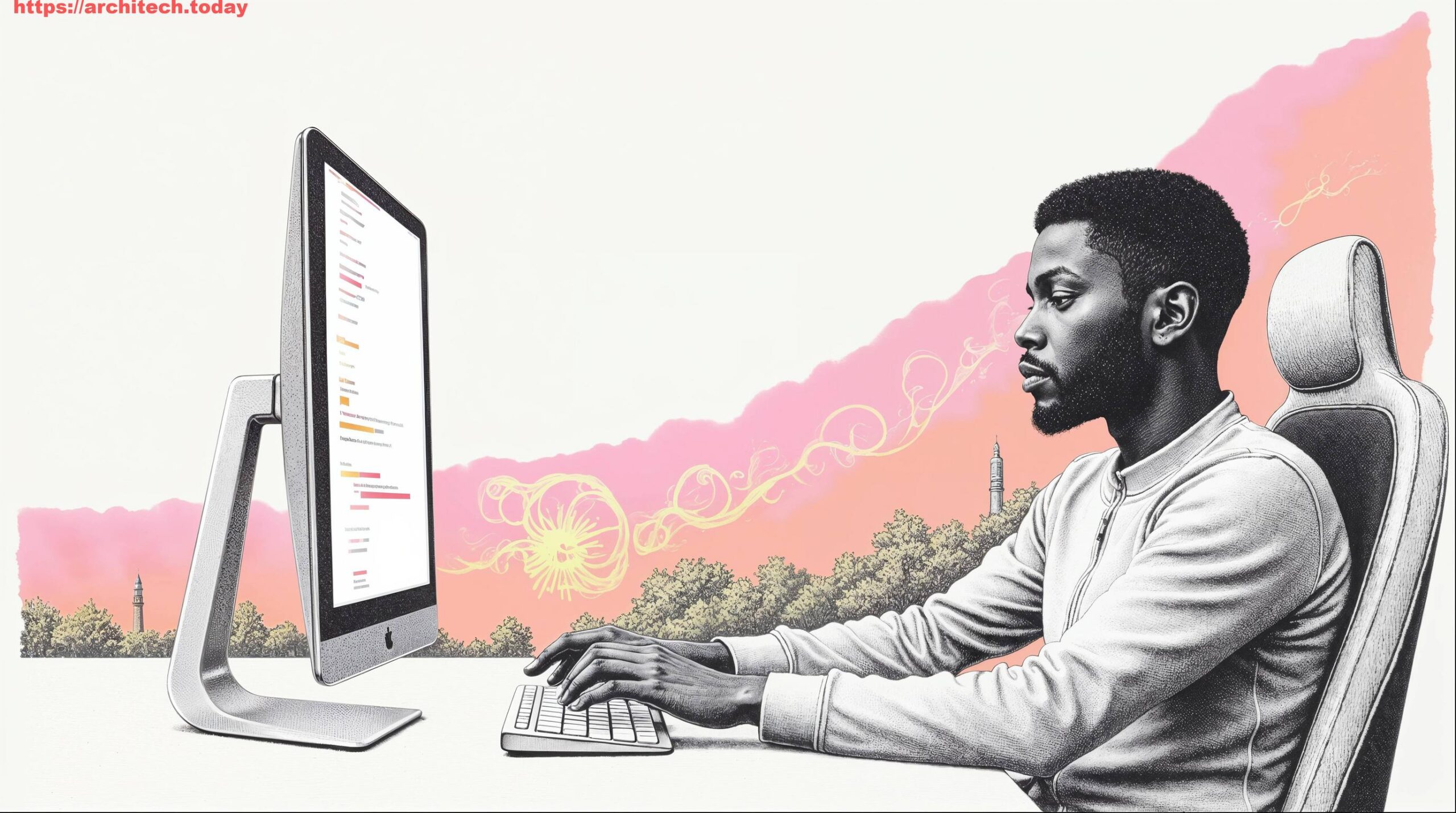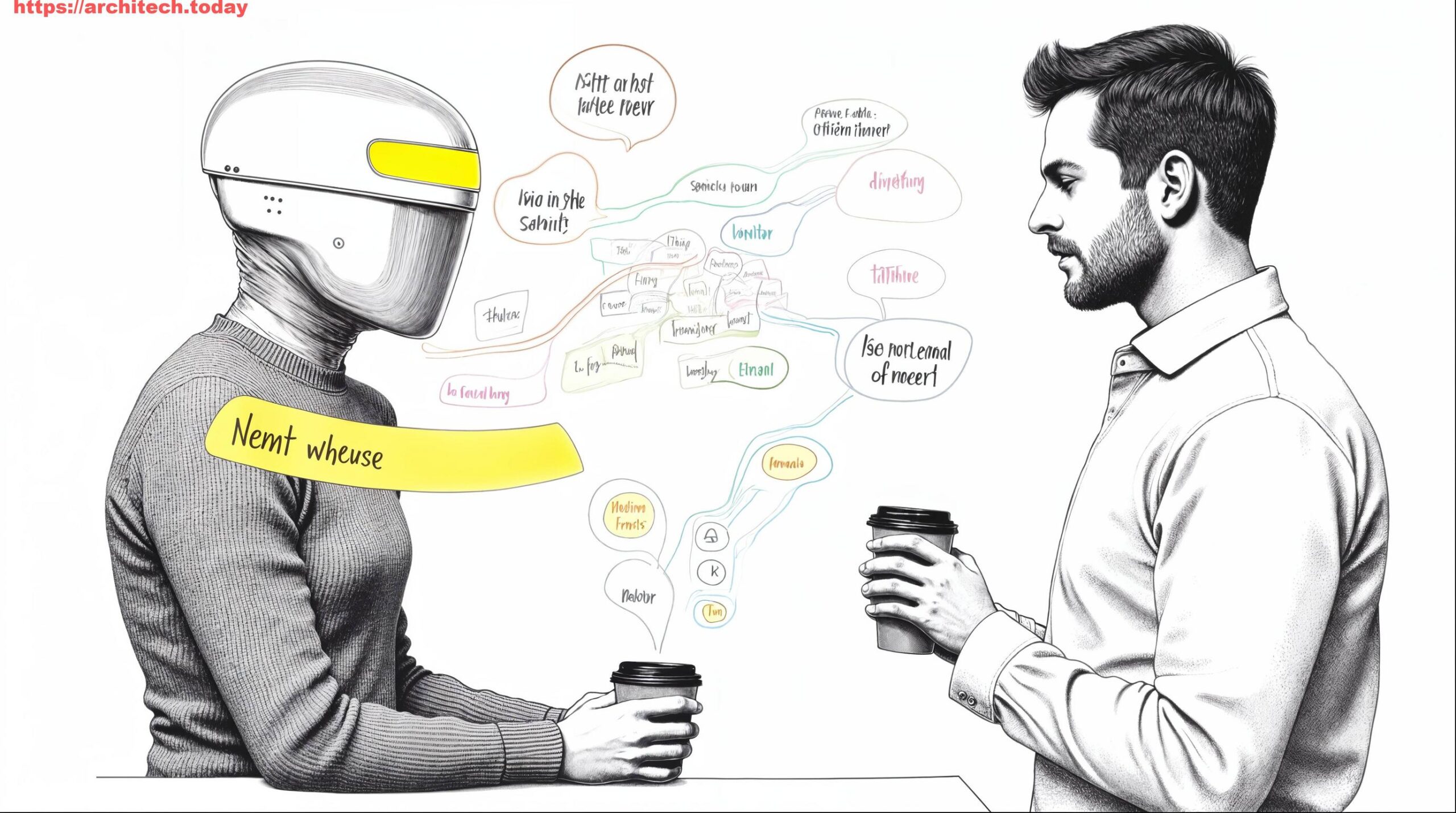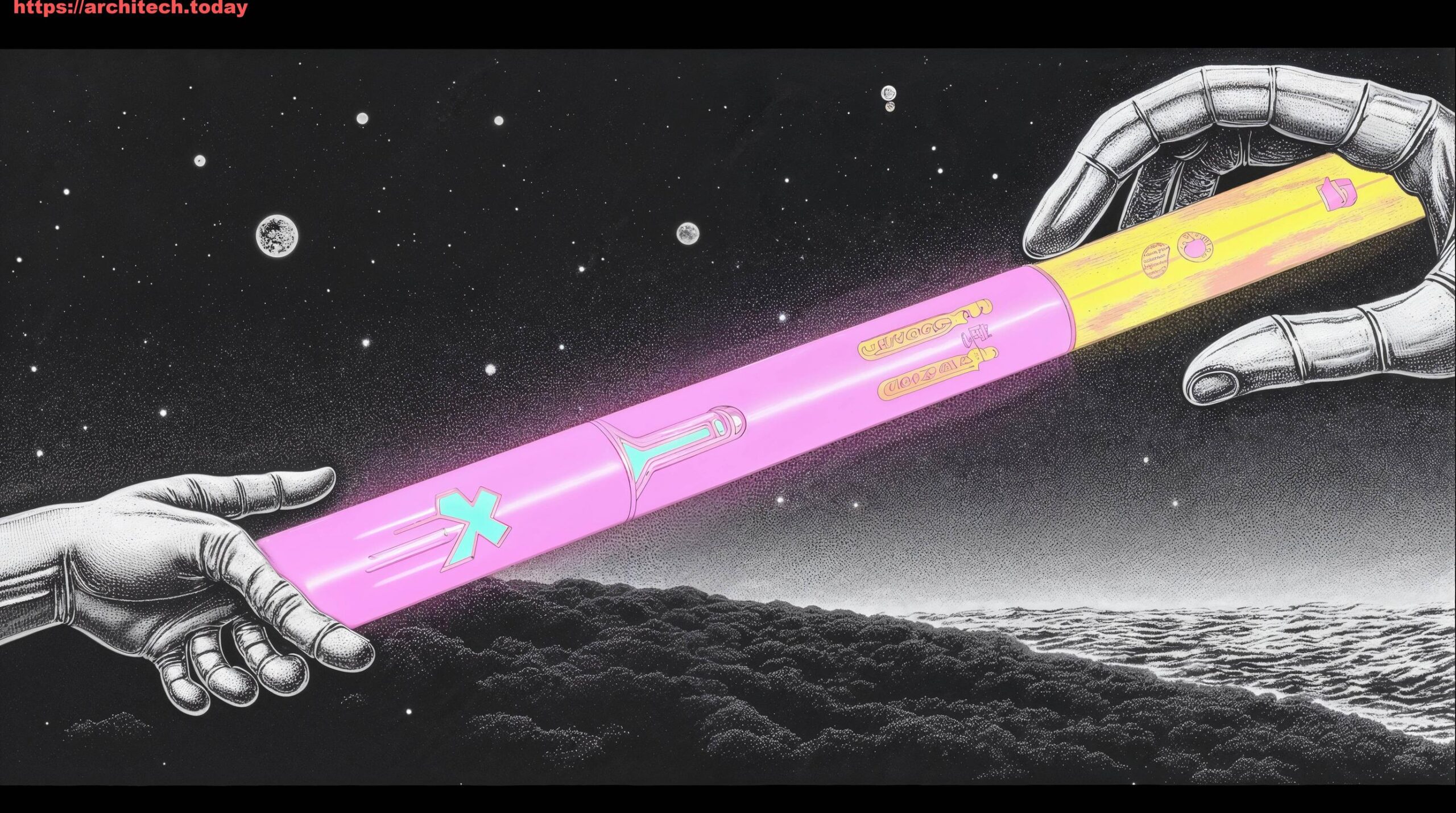The AI-Powered PM: Evolution, Not Extinction, in Project Management
Imagine it’s 2025, and your AI assistant has already outlined your project plan over coffee, highlighted potential risks you hadn’t even considered, and even drafted initial stakeholder communication. Sounds like science fiction? Not entirely. The rapid advancements in Artificial Intelligence have ignited a fervent debate across industries, with project management at its core: Will AI eventually automate so much that the PM role changes drastically, or even disappears?
For project managers and business leaders alike, this isn’t just a theoretical musing; it’s a very real concern about the future of work and their long-term career impacts. In 2030, is your project manager a human, an AI, or a bit of both? The question often stirs a mix of anxiety and curiosity. Will the sophisticated algorithms and machine learning models of tomorrow render the human project manager obsolete, or will they become indispensable allies, augmenting our capabilities beyond anything we currently imagine?
The aim of this forward-looking piece is to address this pivotal question tactfully, neither painting an overly rosy picture nor unduly alarming the very professionals it seeks to inform. We believe that while things will undoubtedly change, the human element in project management isn’t going away. Instead, it’s poised for a profound evolution. By exploring the current landscape of AI in project management, projecting its future capabilities, and highlighting the uniquely human strengths that technology cannot replicate, we will provide reassurance through insight. You will gain a clear understanding of how to remain valuable, how to adapt, and how to proactively prepare for an AI-powered future where your role transforms from a taskmaster to a strategic orchestrator, a “chief motivator” navigating complex challenges with unprecedented tools at your disposal.
The AI-Powered Present: Where We Are Now in Project Management
To truly grasp where we’re headed, we must first acknowledge where we stand. AI isn’t some distant future concept; it’s already deeply embedded in our daily project management workflows, quietly revolutionizing how we execute tasks and make decisions. Think of it this way: operating without AI tools in today’s project landscape is like trying to connect to the internet with a dial-up modem in a 5G world. It’s slow, inefficient, and puts you at a significant disadvantage.
Today, AI automation is already handling a significant portion of what was once considered mundane, time-consuming project management tasks. From sophisticated scheduling algorithms that optimize timelines and resource allocation to predictive analytics that foresee potential bottlenecks and risks before they materialize, AI is enhancing efficiency and foresight. Tools are now capable of automated task assignments, intelligent resource leveling, and even basic communication simulations. For instance, AI-driven platforms can analyze historical project data to provide highly accurate effort estimations, significantly reducing planning time and improving budget adherence. They can flag potential scope creep by analyzing changes in requirements documents or even suggest optimal team compositions based on individual skill sets and project demands.
Consider a product manager attempting to prioritize a sprawling feature backlog. Traditionally, this involves endless meetings, manual data analysis, and subjective judgment calls. With AI, a product manager can feed in customer feedback, market trends, development costs, and strategic objectives, and an AI algorithm can instantly generate prioritized lists, complete with predicted impact and dependencies. This doesn’t replace the product manager; it liberates them from tedious data crunching, allowing them to focus on the strategic “why” behind product decisions and engaging stakeholders effectively.
Similarly, for a project manager overseeing a complex infrastructure build, AI-powered predictive tools are invaluable. Instead of manually sifting through Gantt charts and spreadsheets, the AI can monitor real-time progress, identify deviations from the baseline, and even simulate the impact of various corrective actions. It might alert the project manager to a potential delay in a critical path activity two weeks before it becomes apparent to human eyes, enabling proactive intervention rather than reactive damage control. This capability shifts the project manager’s focus from constant oversight to strategic problem-solving and proactive risk mitigation. The grunt work of data collection, analysis, and basic forecasting is increasingly handled by intelligent systems, making project management smarter, faster, and more data-driven. The goal isn’t to replace the human brain, but to augment it with unparalleled processing power and foresight, allowing project professionals to deliver value faster and make more informed decisions.
The Horizon of Automation: What AI Might Do Tomorrow
If today’s AI in project management is impressive, the projections for tomorrow are truly mind-bending. Picture a project status meeting in 2030: The agenda, action items, and even initial drafts of complex reports are generated by an AI. Instead of painstakingly updating spreadsheets, you’re reviewing AI-driven dashboards that not only show current progress but also offer sophisticated scenario planning, predicting outcomes with startling accuracy. The very fabric of how projects are run will be reimagined, moving towards a future where AI-driven project bots might orchestrate entire agile sprints with minimal human oversight.
Consider the potential for fully autonomous project phases. Imagine an AI-driven system that can interpret stakeholder requirements, break them down into tasks, assign them to team members (human or AI), monitor progress, and even resolve minor dependencies—all without direct human intervention on a day-to-day basis. We could see sophisticated AI agents negotiating with external vendors for optimal rates, managing procurement processes, and even simulating potential communication challenges to suggest the most effective messaging strategy for a diverse stakeholder group. The AI could analyze body language and tone from virtual meetings to provide real-time feedback on team engagement, or even identify subtle shifts in project morale before they escalate.
Emerging technologies hint at this trajectory. We’re talking about AI systems that don’t just predict risks but proactively suggest mitigation strategies, weigh their cost-benefit, and even initiate corrective actions based on predefined parameters. Autonomous agile sprints, where AI intelligently re-prioritizes backlogs in real-time based on shifting market conditions or new data, could become standard. AI could manage complex interdependencies across a portfolio of projects, identifying synergies and potential conflicts that would be invisible to human eyes, thereby optimizing entire organizational resource pools. For example, an AI could analyze hundreds of external factors – global economic indicators, supply chain stability, geopolitical shifts – and automatically adjust a multi-year product roadmap, flagging unforeseen opportunities or threats.
The theoretical capabilities of AI extend to creating comprehensive project briefs from disparate sources of information, autonomously generating test cases, and even simulating user acceptance testing based on predictive models of user behavior. While seemingly utopian, these advancements are rooted in the continuous improvement of machine learning algorithms, natural language processing, and robotic process automation. The goal is to move beyond simply assisting the project manager to potentially taking on the entire project execution lifecycle, allowing human PMs to step back and focus solely on strategic direction, innovation, and navigating the truly unpredictable human elements that still defy algorithmic logic.
The Indispensable Human Element: What AI Can’t Replicate
Now for the good news, or perhaps, the reassuring reality check: Spoiler alert, the rise of our robot overlords as project managers has been greatly exaggerated. While AI will undeniably automate a significant portion of project management tasks, there is a core set of uniquely human skills that technology, no matter how advanced, cannot replicate. These are the nuanced, intangible, yet utterly critical abilities that distinguish true leadership and define successful project outcomes in complex, human-centric environments.
At the top of this list are leadership, empathy, and creativity. An AI can process data and identify optimal paths, but it cannot inspire a demotivated team, mediate a deeply personal conflict between senior stakeholders, or truly understand the unstated emotional undercurrents within a negotiation. Empathy, the ability to genuinely understand and share the feelings of another, is fundamental to effective stakeholder management, team building, and conflict resolution. Project success often hinges not on perfect plans, but on navigating human dynamics, building consensus, and fostering a shared vision—skills that are inherently human.
Consider complex negotiation. An AI can analyze millions of data points to identify the most logical bargaining position, but it cannot read the subtle micro-expressions on a client’s face, sense the shift in their tone, or understand their underlying anxieties and motivations. Human negotiation involves emotional intelligence, intuition, and the ability to adapt strategies in real-time based on interpersonal cues. Similarly, creativity in problem-solving goes beyond pattern recognition. When a project hits an unforeseen roadblock, an AI can offer data-driven solutions based on past scenarios, but it cannot conjure an entirely novel, out-of-the-box approach that leverages disparate concepts and transforms the challenge into an opportunity. This requires abstract thought, divergent thinking, and a leap of imagination that remains uniquely human.
Vision and strategic foresight, particularly in ambiguous environments, are also beyond AI’s current grasp. While AI can analyze trends, it cannot formulate a truly disruptive vision for a product or an organization, nor can it inspire a team to rally behind a future that doesn’t yet exist. Human project managers excel at articulating a compelling narrative, navigating political landscapes, and building relationships based on trust and mutual respect – elements that are crucial when managing diverse, often conflicting, stakeholder interests. These are the soft skills that become hard currencies in a world where machines handle the hard data. The value of a human PM increasingly lies in their ability to foster collaboration, cultivate innovation, and provide the human touchpoints that transform a collection of tasks into a cohesive, motivated endeavor.
The Evolved PM: From Taskmaster to Strategic Orchestrator
With AI poised to handle the tactical minutiae, the project manager’s role is not disappearing; it’s elevating. The future project manager will transition from a taskmaster, bogged down in scheduling and reporting, to a strategic orchestrator, a chief motivator, and a visionary leader. This evolution represents a significant and exciting shift, empowering PMs to deliver value faster, make more informed decisions, and truly influence strategic outcomes.
Imagine a product manager leveraging AI not for basic data entry, but to analyze vast datasets of customer feedback, market trends, and competitor intelligence. The AI provides a crystal-clear, data-driven prioritization of the feature backlog, identifying optimal sequences for development and predicting market reception. This frees the product manager to then focus on the truly strategic aspects: cultivating cross-functional collaboration, aligning the product vision with overarching business goals, and conducting high-level stakeholder management that ensures buy-in and drives adoption. Their time is no longer consumed by trying to make sense of disparate data points; instead, they are synthesizing AI-driven insights into compelling narratives that mobilize teams and excite customers.
Similarly, for a project manager overseeing a complex software development initiative, AI-powered predictive tools become their strategic early warning system. The AI identifies potential delays or resource conflicts weeks in advance, flagging them for the PM. This allows the human project manager to pivot from reactive firefighting to proactive problem-solving. Instead of frantically re-adjusting schedules, they are engaging in high-impact activities like mediating critical team conflicts, coaching junior members, or strategizing with executive leadership on mitigating enterprise-level risks. The PM becomes less of a police officer and more of a strategic consultant, guiding the project through turbulent waters with the assistance of an incredibly intelligent co-pilot.
This shift isn’t about working less, but working smarter and at a higher level of impact. The human PM will become the interface between the technical capabilities of AI and the human complexities of the organization. They will be responsible for interpreting AI insights, adding human context, and translating them into actionable strategies that resonate with teams and stakeholders. Their focus will be on fostering a culture of innovation, navigating organizational politics, and ensuring that projects not only meet technical specifications but also deliver tangible, human-centric value. The evolved PM will be less concerned with “how” a task is done (AI will handle much of that) and more focused on “why” we are doing it, “who” needs to be involved, and “what” the ultimate strategic impact will be. They become the conductor of an orchestra, with AI handling the complex sheet music, allowing the conductor to focus on the performance’s overall harmony and emotional resonance.
Future-Proofing Your PM Career: Embracing the AI Era
The clear message for project managers and business leaders is not to fear AI, but to embrace it as an unparalleled opportunity for professional growth and increased impact. Future-proofing your project management career in an AI-driven world isn’t about competing with machines; it’s about collaborating with them and enhancing the uniquely human skills that distinguish you. This means a proactive approach to continuous learning and a strategic shift in focus.
Firstly, embrace AI as a powerful tool. Learn about the emerging AI technologies in project management. Understand how they work, what their capabilities are, and more importantly, what their limitations are. Don’t shy away from experimenting with AI-powered platforms for scheduling, risk management, or communication. Becoming proficient in leveraging these tools will position you as a cutting-edge professional, capable of extracting maximum value from technological advancements. Consider online courses, webinars, and industry certifications focused on AI in project management. The more you understand how AI can automate the “grunt work,” the better equipped you’ll be to offload those tasks and free up your cognitive capacity for higher-level thinking.
Secondly, double down on your uniquely human skills. While AI excels at data processing and pattern recognition, it struggles with emotional intelligence, complex ethical dilemmas, creative problem-solving, and inspiring human teams. Hone your communication skills, both verbal and written, to convey complex ideas simply and effectively. Develop your leadership capabilities to motivate and guide diverse teams through ambiguity and change. Strengthen your emotional intelligence to navigate interpersonal conflicts, build strong relationships with stakeholders, and foster a positive project culture. Enhance your strategic thinking to translate high-level business objectives into actionable project plans, even when the path isn’t clear. These “soft skills” are becoming the true “hard skills” of the future project manager.
Industry leaders widely echo this sentiment. Recent reports from organizations like the Project Management Institute (PMI) and advisory firms like Gartner consistently emphasize that while AI will transform job roles, it will also create new opportunities for those who adapt. They predict a shift towards roles that require greater strategic foresight, emotional intelligence, and cross-functional collaboration. For instance, Gartner’s predictions often highlight the rise of “digital dexterity” and the need for professionals to master human-machine collaboration. They suggest that the most successful project managers will be those who can effectively “train” their AI assistants and interpret their outputs, essentially becoming skilled integrators of AI into project workflows. Your value won’t be in what you *do* that an AI can do better, but in what you *can do* that an AI cannot do at all.
In essence, future-proofing your career means becoming an architect of collaboration between humans and machines. It means focusing on your ability to build consensus, manage change, inspire innovation, and navigate the unpredictable human elements that are inherent in every successful endeavor. By continuously evolving your skill set, you ensure that you remain an indispensable asset, steering projects towards success in an increasingly intelligent world.
Conclusion: Leading the Way in the AI-Powered Project Landscape
As we stand on the precipice of a new era, the question of whether AI will take over project management is met not with fear, but with a clear understanding: AI is not here to replace human project managers, but to revolutionize their role. We’ve explored how AI is already automating the mundane, from predictive scheduling to risk analysis, freeing up project managers from the shackles of repetitive tasks. We’ve envisioned a future where AI-driven bots might orchestrate entire sprints, but critically, we’ve also underscored the enduring and irreplaceable value of human skills—leadership, empathy, creativity, and strategic nuance—that no algorithm can truly replicate.
The narrative is clear: the project manager of tomorrow will be an evolved professional, stepping away from the traditional role of a taskmaster and embracing that of a strategic orchestrator. They will be the chief motivator, the visionary, the empathetic leader who leverages AI as a powerful co-pilot, enabling faster value delivery and more informed, impactful decisions. This evolution isn’t a threat; it’s an unparalleled opportunity to elevate the project management profession, allowing professionals to focus on the intricate human elements and strategic challenges that truly drive success.
To thrive in this exciting future, the call to action is simple yet profound: embrace AI. Learn its capabilities, integrate its tools into your workflow, and most importantly, invest deeply in cultivating your uniquely human skills. Your ability to inspire, negotiate, innovate, and connect on a human level will become the most valuable currency in an AI-powered world. So, are you ready to lead the charge, guiding your projects and your teams through this transformative period? What steps will you take today to future-proof your career and become the indispensable AI-powered project leader of tomorrow?








No comment yet, add your voice below!